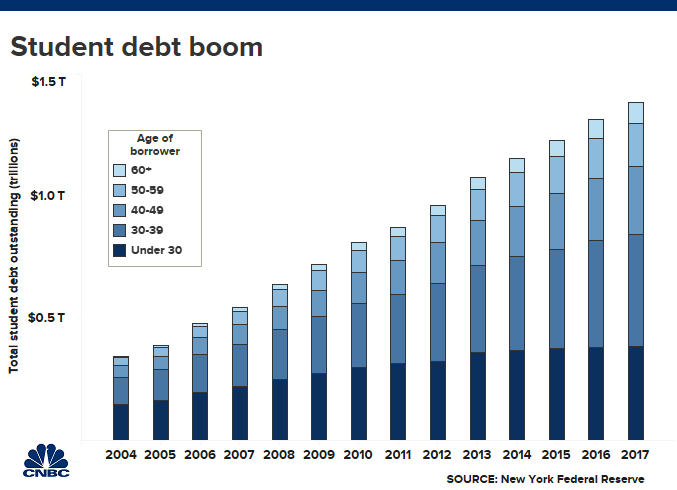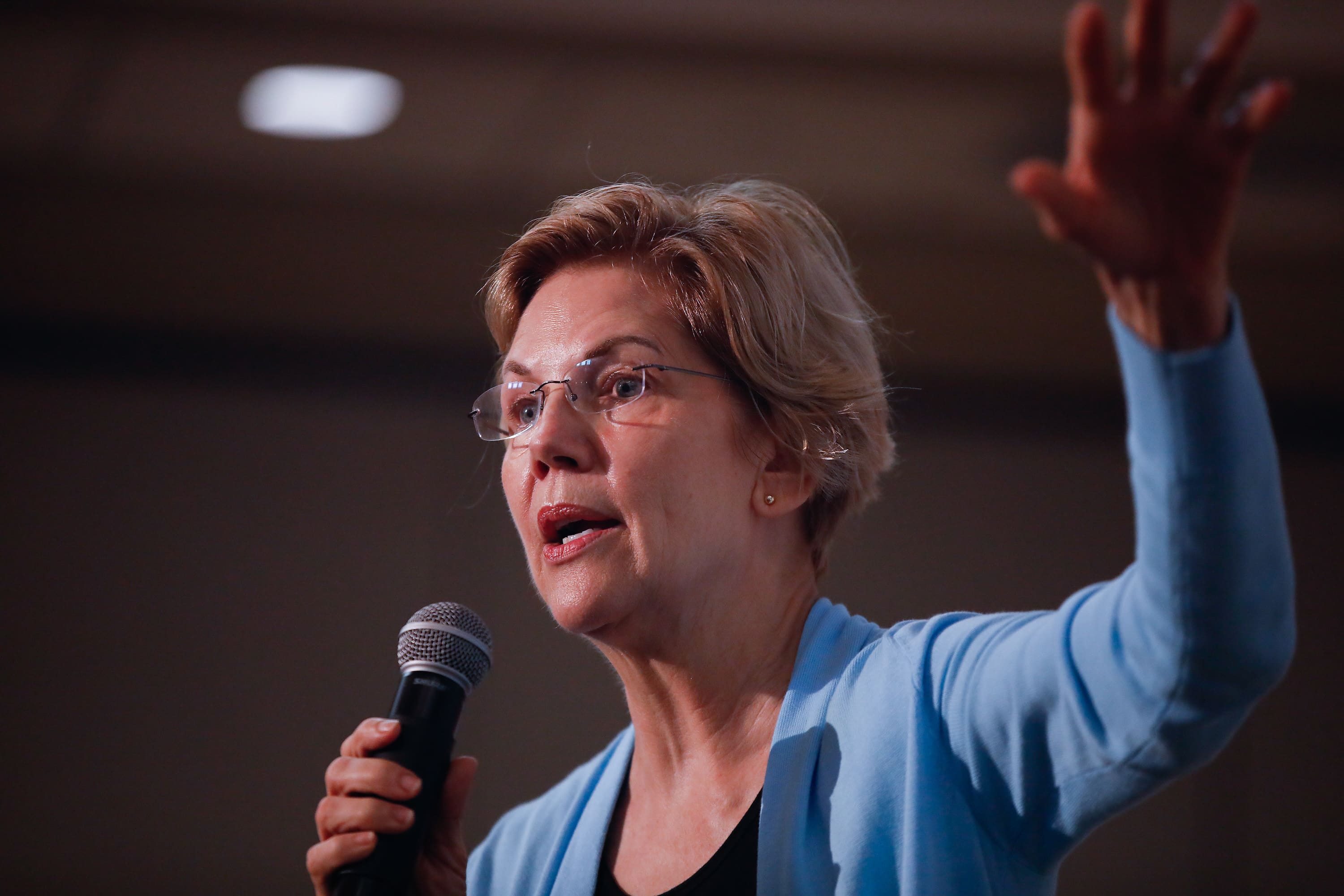Elizabeth Warren speaks at her campaign for the Democratic nomination for the 2020 United States presidential election
Jeremy Hogan | LightRocket | Getty Images
Sen. Elizabeth Warren, D-Mass., introduced a bill Tuesday that would forgive student loans for tens of millions of Americans. Three-quarters of borrowers would have their balances reset to zero.
Warren, who is running for president, first released her plan in April, but the legislation – dubbed the Student Loan Debt Relief Act – offers new details on how she would go about dismantling the country’s outstanding student debt tab, soon expected to exceed $2 trillion.
Education debt in the U.S. has eclipsed credit card and auto debt. Today the average college graduate leaves school $30,000 in the red, up from $10,000 in the 1990s, and 28% of student loan borrowers are in delinquency or default.

Under Warren’s proposal, introduced along with Rep. James E. Clyburn, D-S.C., borrowers with household incomes under $100,000 would get $50,000 of their student debt forgiven. People who earn between $100,000 and $250,000 would be eligible for forgiveness on a sliding scale – the cancellation amount reduces by $1 for every $3 a person earns over $100,000. And those who earn more than $250,000 would not get any debt relief.
The degree of debt forgiveness a person receives would be determined by their income in the most recent tax year. The loan cancellations would take about a year from the time the bill is enacted to complete.
No paperwork will be required as the cancellations would be carried out automatically through information sharing between the Treasury Department, the Internal Revenue Service and the Department of Education.
If a borrower has multiple loans, the Department of Education will void the loan with either the highest interest rate or outstanding balance. So-called Parent Plus loans are also eligible for cancellation.
Any forgiven debt would not be considered taxable income. Those with private student loans would be given the option to convert them into federal loans.
The plan would likely be funded with a 2% annual tax Warren proposes to levy on accumulations of wealth exceeding $50 million, with an additional 1% levy on wealth exceeding $1 billion.
Consumer advocacy groups, including the National Consumer Law Center, came out in support of the plan.
“We know that millions of young people across the country — many of whom are students of color and low-income students — are buried under insurmountable debt from pursuing higher education,” said Rachel Fleischer, the executive director of Young Invincibles, a student advocacy group. “We support bills like the Student Loan Debt Relief Act because it recognizes the enormity of the crisis facing today’s borrowers.”
Critics say the plan is costly and fails to address the root of the problem with today’s higher education system. “This proposal does nothing to decrease the cost of college and does not help future students,” said Richard Hunt, president and CEO of the Consumer Bankers Association. “It is short-term, short-sighted and comes up short in every way except its cost to taxpayers.”
More from Personal Finance:
Here’s how much income tax you’re paying to your state
A parent’s guide to helping their kid get into college
Michael Avenatti allegedly failed to file tax returns. That’s a bad idea
And others don’t see a viable road to passage for the legislation. Republicans are unlikely to support the bill, said Mark Kantrowitz, a higher education expert. “It might even have difficulty passing the House, where some Democrats may hesitate because of the cost,” Kantrowitz said.
Still, the plan is popular among voters.
In a Politico/Morning Consult poll, 56% of registered voters said they support the Massachusetts senator’s proposal to cancel outstanding education loans by raising taxes on the wealthiest Americans. Just 27% of voters said they opposed the plan.
Sen. Bernie Sanders, I-Vt., announced a proposal in June to completely wipe out the country’s $1.6 trillion outstanding student loan balance, intensifying the higher education policy debate in the 2020 Democratic presidential primary.
